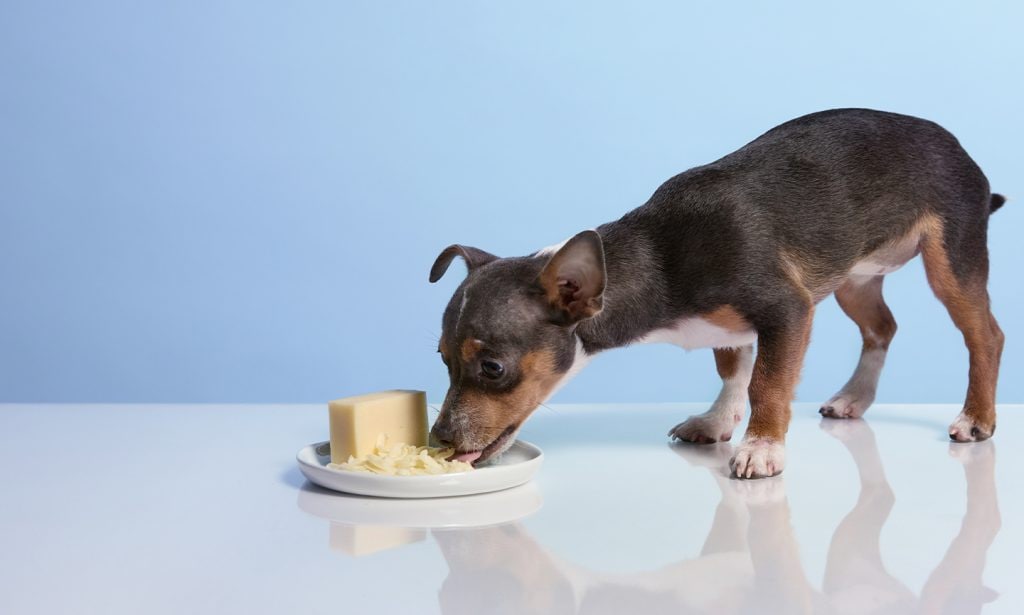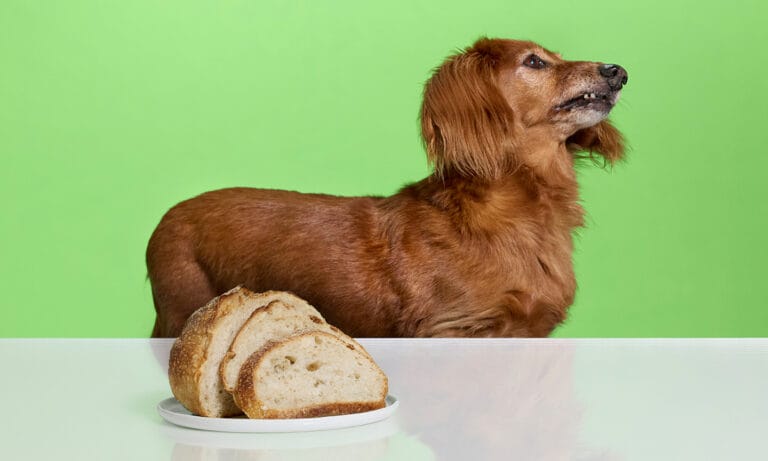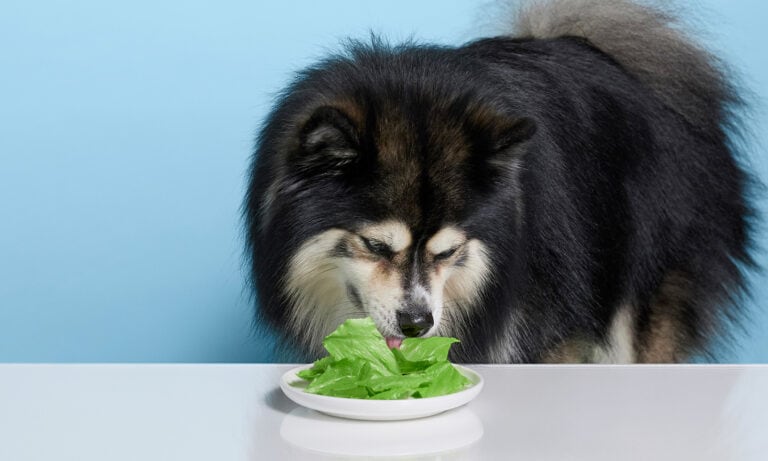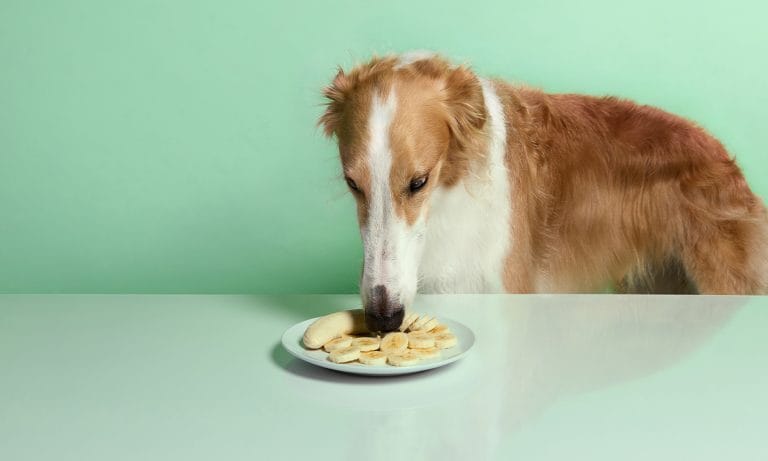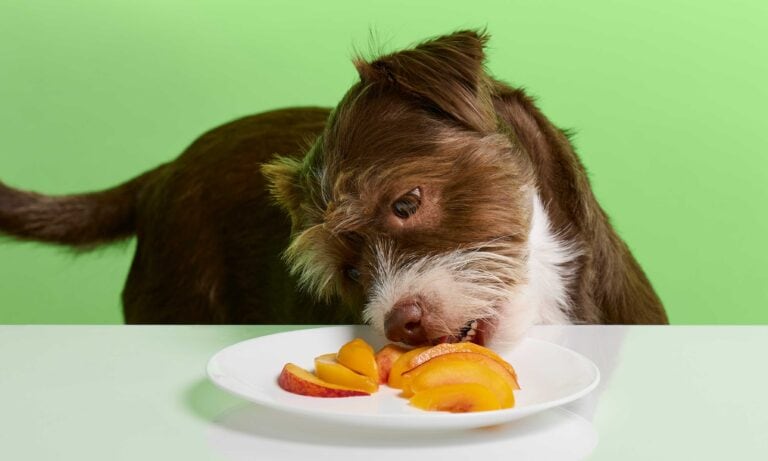Can dogs eat cheese? Yes, many can. While cheese is not toxic to dogs, they lack the digestive enzyme lactase, meaning they’re born with lactose intolerance. As long as you’re feeding cheese to your dog as an occasional treat and avoiding fatty cheeses — sorry, pups, no brie for you! — cheese is usually safe. And it can be good for them, too!
We spoke with Dr. Albert Ahn, DVM, veterinary advisor for MYOS Pet, for tips and advice on how to include cheese in your pup’s diet.
Benefits of Cheese for Dogs
Is cheese good for dogs? Yes, it can be!
Dr. Ahn says cheese is rich in calcium, an important mineral for dogs. It helps maintain strong bones and teeth, and healthy bones are vital to helping dogs have an active lifestyle full of walks and playtime.
Risks of Feeding Cheese to Your Dog
While most dogs can eat cheese as a treat or mixed in with their regular food, Dr. Ahn has a few things to keep in mind before feeding cheese to your dog:
- Remember, dogs are lactose intolerant. Because their bodies are not able to fully and properly digest dairy products, including cheese, they may get an upset stomach from eating it.
- Cheese can cause weight gain. Cheese has a lot of calories due to its naturally high fat content (which is part of why it tastes so good!), so pet parents concerned about their dog’s weight should avoid feeding them cheese.
- If your dog has had pancreatitis, avoid cheese. Pancreatitis is a serious and life-threatening digestive disorder that may require hospitalization. Check with your vet first if your dog has had this issue.
How to Feed Cheese to Your Dog
You should always consult with your vet before feeding cheese to your dog to determine the safest kind and appropriate portion size. Even a calcium-packed treat like cheese should be factored into your dog’s optimum daily balanced diet. Dr. Ahn says pet parents should:
- Choose a low-fat cheese. Cottage cheese and mozzarella are good options. Avoid cheese with high fat content like goat cheese, feta and brie.
- Avoid spicy cheeses. That means no pepper jack cheese or spicy siracha cheddar! Spicy cheeses may cause an upset stomach.
- Start small. If your dog has never had cheese before, start with a small amount to see how they react. If they don’t have any side effects like an upset stomach, you can continue feeding cheese to your dog in small quantities and in moderation.
- Mix cheese in with your dog’s regular food. A sprinkle of cheese makes a nice food topper. Or try hiding the cheese under your dog’s regular food to make them work for the special treat.
Frequently Asked Questions
Q:Can dogs eat cheesecake?
A:No. Cheesecake has a very high fat content, which can put dogs at risk for developing pancreatitis.
Q:Can dogs eat cheese sticks?
A:Yes, but Dr. Ahn recommends low-fat cheese sticks. They can be broken up and given as a small treat.
Q:Can dogs eat cream cheese?
A:No. Cream cheese is very high in fat, which can contribute to dogs being overweight or obese.
Q:Can dogs eat cottage cheese?
A:Yes! Cottage cheese is a nice low-fat option that many dogs love. Just remember to introduce this new food slowly.
Q:Can dogs eat mozzarella sticks?
A:Yes, in moderation and as a small part of your dog’s balanced diet.
Q:Can dogs eat cheese puffs?
A:No. Cheese puffs have a lot of fat and sodium, neither of which are good for your dog.
Before incorporating any new foods into your dog’s diet, always consult with your veterinarian to make sure it’s a safe addition to your pet’s diet given their health, diet needs, and current medications. Your vet will tell you if your dog can eat cheese and the appropriate serving size. If you suspect your pet is sick, please call your vet immediately. For health-related questions, always consult your regular veterinarian when possible as they can make the best recommendations for your pet. (If you need help finding a vet near you use this link.)
Expert input provided by Dr. Albert Ahn, DVM, veterinary advisor for MYOS Pet.
Shop Related Products on Chewy
Share:
